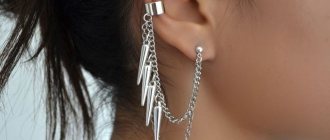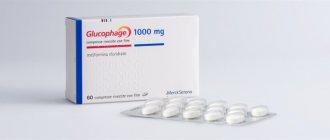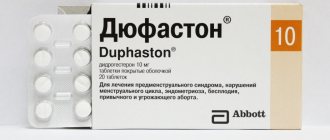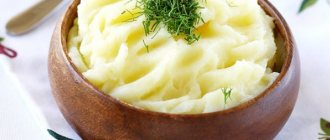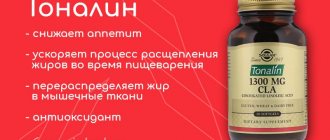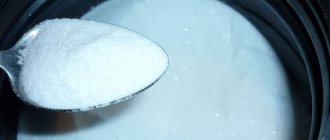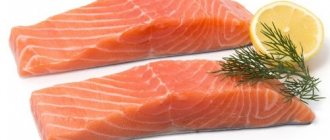Table of contents
- Lecithin for Liver Health
- Lecithin against cholesterol
- For little geniuses
- Versatile, effective, safe
- How does the body react to a lack of lecithin?
- Natural Sources of Lecithin
- How to use?
- There are few contraindications, but they exist
Lecithin is a fat-like organic substance, which is a complex of phospholipids. This, without exaggeration, is fuel for the human body. It is a building material for cell membranes. Strengthens the nervous system, indispensable for the liver and brain. Lecithin also helps to establish lipid metabolism in the human body and normalize cholesterol levels in the blood. Indications for the use of this drug are very wide. It is necessary both for the development of the growing body and for maintaining the health of mature people.
Lecithin for Liver Health
This drug is the liver's best friend. The largest amount of lecithin in our body is contained in this organ - 65% of the total. Therefore, lecithin is prescribed for any liver pathologies - hepatitis, fatty liver, intoxication, cirrhosis.
In case of alcohol intoxication, lecithin will also support liver health and reduce unpleasant symptoms of withdrawal syndrome (hangover). It activates the body’s ability to resist toxins and stimulates the production of bile, provokes active regeneration (restoration) of liver cells. Although drinkers need to treat not the liver, but the head.
In addition, lecithin is a strong antioxidant that can remove toxins from the body.
Why does our body need lecithin?
Lipids and amino acids are necessary for our body for the functioning of the nervous system and brain. Lecithin is the main building block of our cells (namely, cell membranes); the liver consists of almost 50% phospholipids.
Lecithin also takes part in cell homeostasis, energy and various metabolic reactions. A large amount of lecithin is found in our liver, brain, seminal fluid, and nerve fibers.
Lecithin removes “bad” cholesterol from the body, makes the blood composition more harmonious, and improves the functioning of the cardiovascular system. Normalizes the digestive and reproductive system. Makes the walls of blood vessels more flexible and elastic.
And the beneficial properties of lecithin do not end there, but more about this a little later.
Lecithin against cholesterol
Since cholesterol is contained in the same products as lecithin, the benefits and harms of consuming such products seem to be equalized. Lecithin keeps cholesterol dissolved and, accordingly, prevents its deposition on the walls of blood vessels. Additionally, lecithin entering the body helps eliminate cholesterol that has already begun to be deposited, reducing its overall level by 15–20 percent.
In addition, lecithin activates the work of enzymes to break down fats, stabilizes fat metabolism, and promotes better absorption of vitamins A, D, E and K. Phospholipids activate blood microcirculation in the body. Therefore, lecithin, having virtually no side effects, is indispensable for the prevention of heart disease and atherosclerosis. It is also prescribed to patients during the recovery period after heart attacks and strokes.
Lecithin. How it helps and how to take it
Articles
Powdered lecithin is considered one of the most beneficial health supplements. But few people know how wide its scope of application is! The benefits of lecithin, which one to choose and how to take it will be discussed below.
The history of lecithin
It was first discovered by a scientist from France T. Gobley, who in 1845 revealed the similarity in the composition of brain tissue and egg yolk. According to his theory, which was soon proven, it is lecithin that is the unifying component. It consists of 75% phospholipids, triglycerides, and is a fat-like substance. Phospholipids are the components of cell membranes; they are found in most living organisms and tissues. So, there are a lot of them in the tissues of the brain, liver, blood plasma, heart, and bile.
Modern sources of lecithin
Today, this most valuable ingredient is obtained from soy, egg yolk, and sunflower. Soybeans are most often used, followed by sunflower seeds. Lecithin is too expensive to make from egg yolk. It is used not only in the pharmaceutical industry, but also in the chemical, food, and cosmetics industries. Supplements for health and beauty are created from it, and added to emulsifying and antioxidant mixtures.
What does lecithin consist of?
It harmoniously combines 4 forms of phospholipids:
- Phosphatidylcholine (30% of the total).
- Phosphatidylethanolamine (20% of total)
- Phosphatidylinositol (about 15%)
- Phosphatidylserine (about 3%)
Thus, lecithin is not just one ingredient, as many people think. And a whole complex, a mixture of valuable phospholipids, which have their own effect on the human body.
Overall usefulness
As already mentioned, phospholipids make up the structure of cell membranes and are involved in most processes in the body. In addition, lecithin is very beneficial for the liver because it contains phosphatidylcholine, a constituent of liver cells. When the liver is sick, cell membranes are destroyed, and lecithin and its components restore them.
Lecithin preparations are indicated for the treatment and prevention of liver diseases, for its restoration and in the form of complex therapy. Lecithin is one of the effective, natural, natural hepatoprotectors! Its qualities are proven by medicine:
- well absorbed by the body;
- compatible with other drugs;
- safe even in case of overdose;
- effective with long-term use;
- protects the liver from destructive processes;
- restores its cells;
- gives good regeneration;
- normalizes general metabolism;
In addition, this substance has good antioxidant properties and acts as a detox on liver cells. Important! Lecithin, in greater or lesser quantities, is included in most pharmaceutical hepatoprotectors (Essentiale Forte N, Doppelgerz and others). This is another proof of its benefits for the liver.
The benefits of lecithin for blood vessels and blood
According to medical research, regular intake of lecithin preparations (on average 1200 mg daily) normalizes blood pressure levels within 2 months. Taking lecithin as a vitamin supplement is recommended for the prevention of cardiovascular diseases. In particular, atherosclerosis, which subsequently leads to heart attack and stroke.
This is who is especially recommended for dietary supplements with lecithin
- People who lead an unhealthy lifestyle: those who, due to work, move little, spend little time in the fresh air, eat irregularly, smoke, drink.
- For those who often diet and exhaust themselves with training: to compensate for this stress, you need to regularly take lecithin.
- Anyone who suffers from nervous “manager syndrome” or overstrain at work: to maintain body tone, to protect the brain, performance, and to avoid nervous burnout, lecithin is needed.
- For those who are undergoing rehabilitation and preventive treatment, as a way to strengthen the body and reduce harm from medications.
Are there any contraindications for lecithin?
Since this is a natural supplement made from soy or sunflower seeds, it has almost no contraindications. But lecithin should be taken with caution or under medical supervision in the following cases:
- with pancreatitis, exacerbation of cholelithiasis;
- if you are allergic to yolk, soy and individual intolerance to other components of the drug;
Pregnant and breastfeeding women can take this substance, but only after consulting their doctor.
Lecithin in powder, tablets or granules
Today there are various forms of release of this drug. The most popular are lecithin in powder, followed by tablet form, granules and gel. The latter type is usually designed for children.
How to take powdered lecithin? Very simple and convenient! Take 1-2 tbsp. spoons of powder and mix with any freshly prepared food (usually porridge, yogurt). You can also simply drink the powder with water or dilute it in water and drink immediately. The remaining mixture should be stored in a tightly closed jar, preferably on the refrigerator door, without temperature changes.
What side effects are possible?
As a rule, if taken correctly and regularly, they are not observed. But at the beginning of treatment, some short-term disorders are possible:
- belching;
- nausea;
- heaviness in the stomach;
- headache;
Pay attention to these symptoms! They should go away within 1-2 days after starting to take the drug. If this does not happen, stop taking it and consult a doctor. Another possible symptom: itchy skin and runny nose may be a sign of an allergy to lecithin or other components. In this case, you should stop taking it.
Conclusion
Lecithin powder is an effective, natural and very useful supplement that is indicated for people of different ages and professions. For many, it will become a protection against gastrointestinal disorders, will support and strengthen some during periods of rehabilitation, and will increase the body’s tone and performance. Its advantage is its safe content and effective components that are perfectly absorbed by the body.
For little geniuses
Lecithin is necessary for a child from the first days of life - primarily for the formation and development of the central nervous system. When breastfeeding, the baby receives lecithin with mother's milk. If for some reason natural feeding is not possible, lecithin deficiency must be eliminated additionally.
Also, a child’s body is especially vulnerable to a lack of lecithin during times of stress. The first serious experiences begin during the adaptation period, first in kindergarten, then at school. First-graders are a separate matter. During this period, lecithin is simply necessary. It stimulates brain activity and reduces fatigue. Improves memory, attention, increases stress resistance.
For schoolchildren, lecithin in gel form is best suited. Children do not associate it with pills; on the contrary, manufacturers make it taste pleasant and have a fruity smell. Another option is lecithin in soluble capsules. Children rarely refuse a vitamin drink. Most often, children's lecithin also contains a complex of vitamins necessary for a growing body.
The effect of food additive E 322 (lecithin) on the body
We said above that the food supplement E 322 (lecithin) is necessary for our body to function fully and properly. Cell membranes are built from lecithin components, which ensures the integrity and restoration of cells, and their saturation with nutrients. Lecithins improve brain activity, they are able to provide vigor and clarity of mind, and have a beneficial effect on memory and mental activity of a person. This substance regulates the exchange of nerve impulses between the brain and body cells.
If the body does not receive enough carbohydrates, lecithin provides the body with energy.
Sources:
- https://potrebiteli.guru/produkty/pishhevye-dobavki/e322.html
- https://vkusologia.ru/dobavki/antioxidanty/e322.html
- https://www.SportObzor.ru/diety-pravilnoe-pitanie/pischevaya-dobavka-e322-polza-i-vred-dlya-organizma.html
- https://coolhealth.ru/dobavki/pishhevaya-dobavka-e322-soevyj-letsitin-opasna-ili-net.html
Versatile, effective, safe
Taking lecithin is effective for many diseases, as well as for their prevention. For example, during physical and psycho-emotional stress, constant stress, taking lecithin will help improve the general condition of the body and nervous system.
Lecithin is able to protect the mucous membrane of the gastrointestinal tract from harmful effects. Therefore, its use is indicated for people suffering from gastritis, colitis and peptic ulcers.
For psoriasis and dermatitis, taking lecithin will significantly reduce unpleasant symptoms. Therefore, it is often used in the complex treatment of skin diseases.
Lecithin is also prescribed for various female diseases, including uterine cancer. Therefore, taking it is a good prevention of cancer of the female genital area.
Another magical property of lecithin is its ability to normalize blood sugar levels. It strengthens the membranes of pancreatic cells, in particular beta cells, which are responsible for the production of insulin. Thus, in type 1 diabetes mellitus, lecithin reduces external insulin requirement. In type 2 diabetes, it compensates for the lack of phospholipids and essential fatty acids.
Lecithin is also indispensable for the brain. It has been proven that regular intake of lecithin can stop multiple sclerosis (disintegration of the myelin sheath of the brain), improve brain activity in Parkinson's disease and Alzheimer's syndrome.
Such diverse and wide indications for the use of lecithin are explained very simply - it is found in the cells of all body systems. However, it does not have serious side effects.
Benefits and harms of food additive E 322 (lecithin)
The benefits of the food additive E 322 (lecithin) are due to their chemical composition. Food supplement E 322 contains:
- phospholipids (participate in the construction and regeneration of cell membranes);
- polyunsaturated fatty acids (increase immunity, strengthen blood vessels, participate in the process of hematopoiesis);
- tocopherols (powerful antioxidant, protects cell membranes from destruction);
- carbohydrates (energy source);
- plant sterols (lower the level of “bad” cholesterol, protect against infections);
- triglycerides (nourish cells, prevent the risk of heart attack);
- B vitamins (responsible for the functioning of the nervous system, normalize acidity, improve memory).
Lecithin is well absorbed by the body and is completely broken down.
It has virtually no contraindications. The exception is individual intolerance.
People who are allergic to egg yolk should take products containing E 322 with caution.
The popular opinion that lecithin can provoke premature birth is categorically refuted by science. A substance rich in tocopherols is necessary for the development of the fetus, maintains and stabilizes hormonal levels.
Long-term research conducted by Dr. Warren Meka (Columbia University) has proven the influence of choline, which is part of the E 322 dietary supplement, on the development and memory capacity of a child.
How does the body react to a lack of lecithin?
The nervous system is the first to suffer from a lack of lecithin. Memory disorder, constant mood swings, decreased attention, insomnia - these are the main symptoms of lecithin deficiency in the body.
In addition, if a person does not have enough lecithin from food, digestive upset begins - aversion to fatty foods, frequent diarrhea and bloating. The functioning of the liver and kidneys is disrupted.
Blood pressure may increase, diseases of the gastrointestinal tract, heart and blood vessels, and joints progress.
What happens when there is not enough lecithin?
As soon as the supply of this substance decreases, the body begins to respond to deficiency. As a result, health problems begin. It goes like this:
- At the first stage, the nervous system senses this. She reacts with insomnia, sudden and causeless mood swings, severe memory loss and decreased attention.
- After this, the digestive system reacts. For her, the most important thing is the intake of lecithin with food. If it is not enough, you experience: bloating, diarrhea, poor perception of fatty foods.
- Failures occur related to the functioning of the liver and kidneys.
- If the body does not contain enough of this substance, this leads to a regular increase in blood pressure.
- If there are already diseases related to the digestive system, then they worsen.
- Disturbances in the functioning of the heart and blood vessels increase.
- The risk of dangerous diseases increases: hepatitis, hypertension, coronary artery disease, atherosclerosis, stomach ulcers, liver cirrhosis and some others.
It also increases the chances of osteoporosis occurring too early. The best option is to ensure that you take enough of the drug. This must be done on a regular basis.
Natural Sources of Lecithin
The name of the substance comes from the Greek “lekithos”, which means “egg yolk”. Accordingly, lecithin is found in sufficient quantities in eggs, as well as in foods containing large amounts of fat - beef or chicken liver, seeds and nuts, fish, sunflower oil and meat.
Some vegetables and fruits also contain lecithin. So, there is a lot of lecithin in legumes, in particular in soybeans. The raw materials for the production of industrial lecithin are most often soybean oil, soybeans and its processed products.
Where is the food additive E 322 (lecithin) found?
Lecithin can be found not only in the form of food additive E 322, but also in its natural form in many food products.
These include:
- Nuts and seeds containing large amounts of vegetable oils: they are the main raw materials for industrial production, and therefore can be consumed “directly”.
- Eggs, especially the yolk: lecithin was first extracted from there.
- Fruits with a lot of fat: avocado, durian.
- Animal fats and fish: can be used as animal raw materials to obtain E322.
- Dairy fats: milk, cream, butter.
As a food additive, E322 is found in:
- margarine and other “chemical” dairy products;
- confectionery desserts: chocolate, cakes, cookies, candies, etc.;
- bakery products;
- infant formulas for nutrition.
In addition to the food industry, E322 can be found in:
- Medicine: used in drugs aimed at preventing liver diseases, as well as in some biological supplements.
- Livestock: used as a food additive.
- Chemical industry: It is used in grease-based paints and solvents, in paper processing, as fertilizers and pesticides, and in the manufacture of explosives and vinyl.
- Cosmetics production.
E322 is a natural food supplement produced from plant materials. It is not dangerous and is necessary to give products a better taste, as well as to increase their shelf life.
It can even be used by children, as it is safe and does virtually no harm. You can view data on the substance content in various products in the tables.
How to use?
Lecithin is included in various vitamin complexes, and is also available as an independent preparation in the form of capsules, gels, granules, tablets, and liquids. In liquid form, lecithin can even be mixed with food before consumption.
The daily dose of lecithin is 5–6 grams for an adult and 1–4 grams for a child. This does not include the lecithin that we can get from food. It is usually consumed before or during meals three times a day. The course of treatment (prevention) averages at least three months, but can be continued longer, up to several years.
The final dosage and duration of administration is determined by the doctor.
Lecithin and other phospholipids
March 7, 2017 Articles
What is lecithin? The word "lecithin" has two meanings. This constantly creates confusion both in concepts and in calculations of the content of phospholipids (complex lipids that contain a phosphoric acid residue).
In a narrow sense, lecithin is phosphatidylcholine , one of the most common phospholipids. And in a broad sense, “lecithin” is a mixture of different phospholipids , where phosphatidylcholine is the dominant fraction.
The most common phospholipids are:
- phosphatidylcholine (PC) – the functional group contains choline
- phosphatidylerin (PS) – contains serine
- phosphatidylethanolamine (PE) – contains ethanolamine
- phosphatidylinositol (PI) – contains inositol
- phosphatidic acid (PA) – does not contain a functional group
What roles do different phospholipids play? Most doctors and even nutritionists do not see differences in the composition of phospholipids. It is important for them to have phospholipids. And what they are doesn’t matter. Meanwhile, different phospholipids play far from the same role. The fact is that different organs and tissues (cell membranes) contain different types of phospholipids.
Meaning of PHOSPHATIDYLCHOLINE :
- Protection against atherosclerosis – lowering cholesterol.
- Heart protection in heart failure.
- Protecting the liver during viral infections and alcohol consumption.
Meaning of PHOSPHATIDYLSERINE :
- Improving memory and cognitive functions, reducing the reaction to stress.
- Improved vision.
- Help with dermatitis and arthritis.
PHOSPHATIDE ACID value :
- Stress management (in combination with phosphatidylserine).
- Improving hair growth in alopecia.
- Increased muscle mass.
Different sources differ in their phospholipid composition:
| Source of "lecithin" | FH | FE | FI | FC |
| Soy | 47% | 20% | 21% | 10% |
| Egg | 66-76% | 15-24% | 1,0% | 0% |
Recommendations for taking phospholipids:
Phospholipids are widely represented in animal and plant products. A daily dose of ordinary mixed human food contains about 5.0 g of phospholipids, and approximately the same amount (5.25 g) of phospholipids is contained in 3 yolks of chicken eggs. We emphasize that this quantity is below the level of adequate need.
Nutritionists recommend additionally taking phospholipids in the amount of 1-3 g/day 4-6 g/day are allowed . At the same time, it is emphasized that the positive effect of phospholipids is manifested starting from a dose of 800 mg .
One capsule of Lecithin NSP contains 206.6 mg of pure phospholipids. The official recommendation for taking the product is 2 capsules x 2 times a day, which provides 826.4 mg of phospholipids.
We conducted a comparative pharmacoeconomic analysis of our product “Lecithin NSP” with other products – sources of phospholipids, which are registered in the Russian Federation.
Figure 1 shows the content of phospholipids in one capsule. As can be seen from the graph, most products contain approximately the same phospholipid content and amount to about 200 mg per standard capsule.
We calculated the average cost of a monthly course of taking these products. As follows from the calculations, our “Lecithin NSP” is the most profitable source of essential phospholipids among analogues available on our market, subject to daily intake of 826 mg of phospholipids (dose corresponding to 4 capsules of “Lecithin NSP”).


